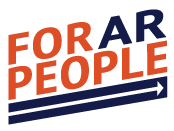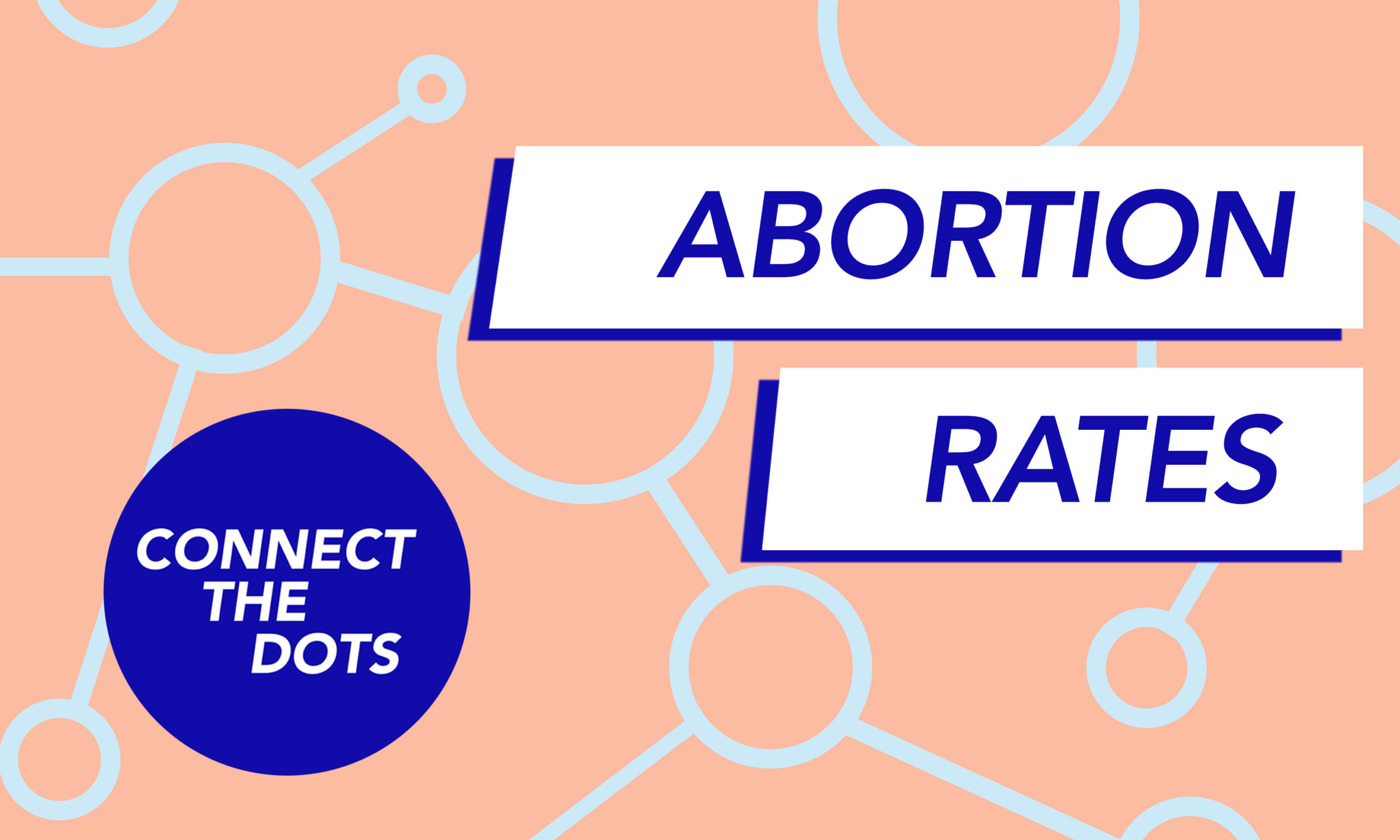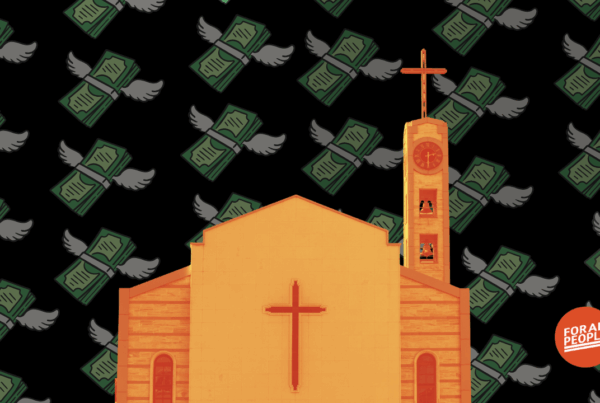News flash: banning abortion doesn’t work
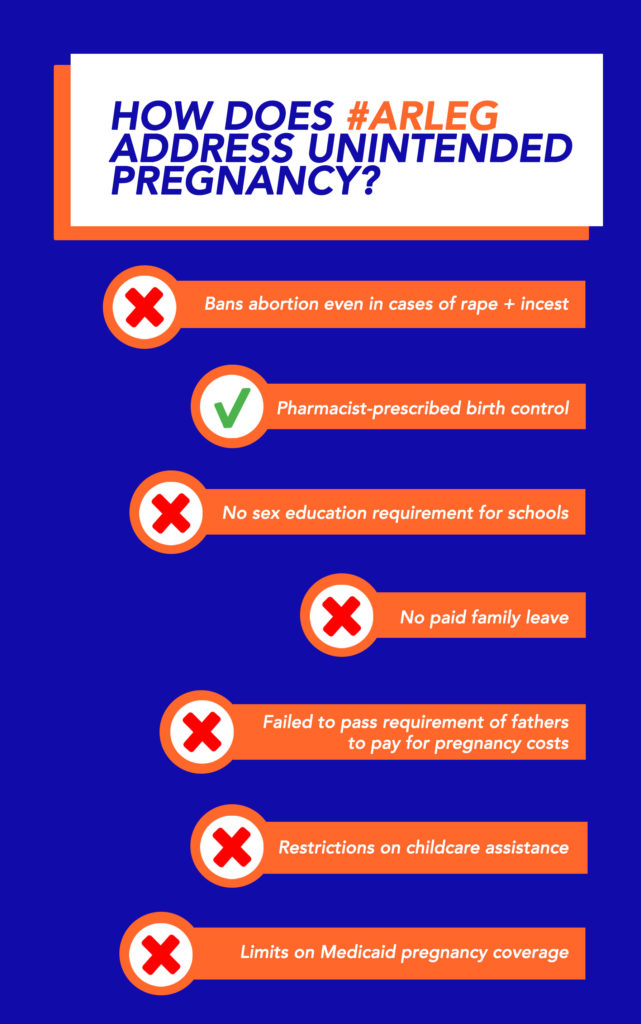
Here at For AR People, we believe that Arkansans have the right to live happy, whole lives. Regrettably the decision to overturn Roe v. Wade has threatened Arkansans ability to do so. In 2021, the #arleg passed a trigger bill that effectively bans abortion in the state. Although the legislature faced major pushback for not exempting rape and incest, the bill passed. But is this actually going to stop abortion in Arkansas? Data shows that there are much better ways to prevent abortions than an all-out ban. Banning abortion puts lives at risk—specifically young people, trans and non-binary people, people of color, and those in low-income households.
So how can Arkansas actually reduce abortion rates? First, it’s essential to understand why unintentional pregnancies happen and why people get abortions. Second, lawmakers can implement pro-whole-life policies that help families without taking away healthcare rights. Some examples of data-driven policies that reduce and prevent abortions are access to contraceptives, comprehensive sex education, universal healthcare, and funding for childcare programs. If Arkansas is truly committed to reducing the number of unexpected pregnancies, it should invest in families—not ban abortions.
Access to Contraceptives
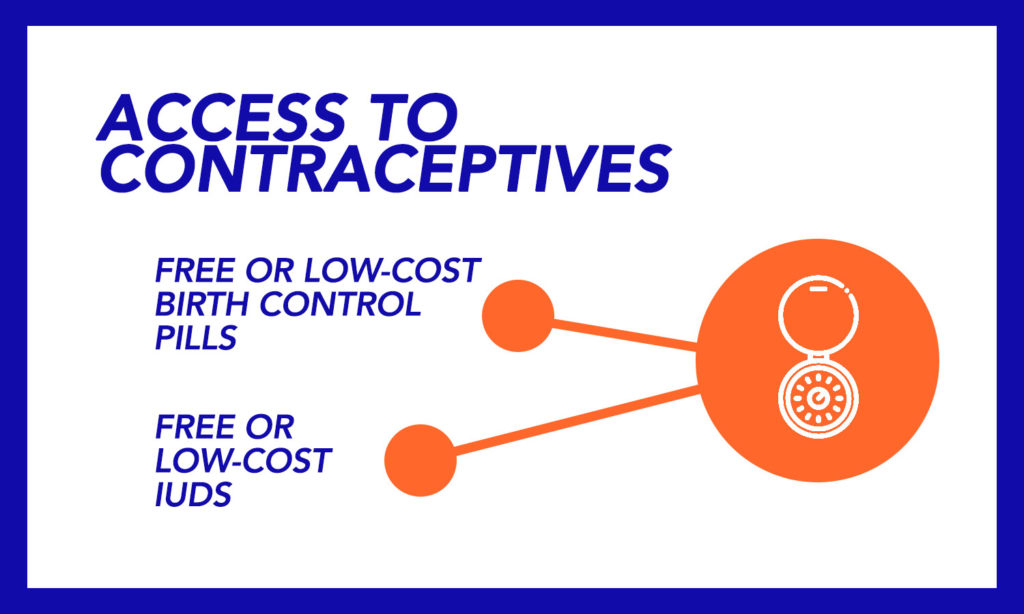
One way to prevent abortion is to increase contraceptive access. Last year the #arleg passed HB1069, which allows pharmacists to prescribe birth control pills to women 18 and older. HB1069 is a great example of a good policy that reduces abortion rates. Another example is increased funding for long-acting reversible contraceptives or IUDs. In 2009, the Colorado Department of Public Health and Environment secured funding to provide low to no-cost IUDs, specifically for low-income women statewide. Incredibly, within five years they lowered the unexpected pregnancy rate by 40% for women ages 15-19 and 20% for women aged 20-24. Additionally, they were able to cut abortion rates nearly in half for teens and 18% for women in their 20s.
Sources: Colorado Department of Public Health and Environment
Comprehensive Sex Education
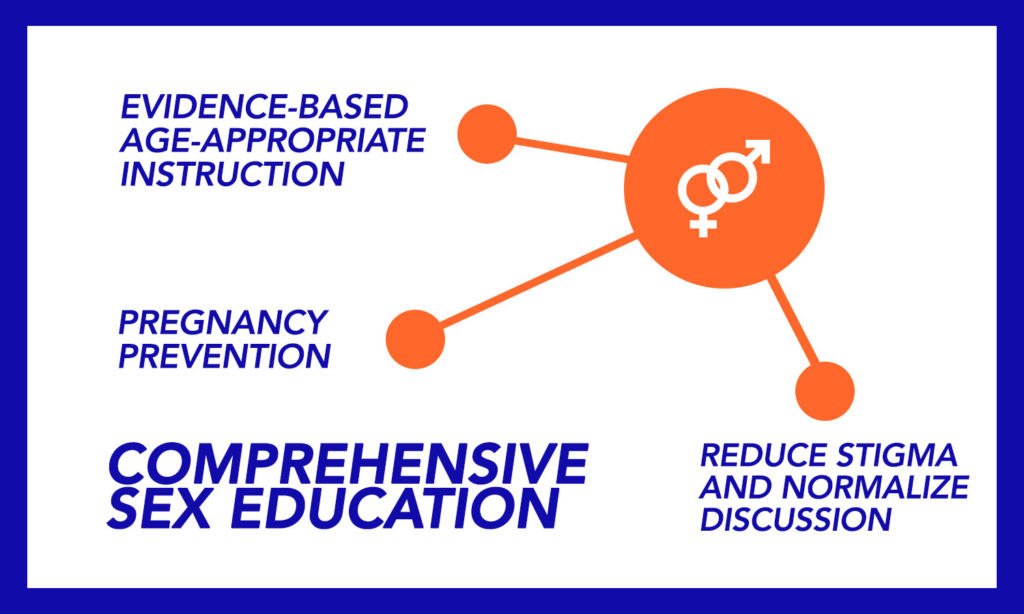
Did you know that Arkansas has one of the highest teen pregnancy rates in the nation? No doubt our lack of comprehensive and medically accurate sex education policies are to blame. Despite positive efforts in 2019 and 2021, Arkansas still does not require that sex education be taught in schools. This is problematic because we know the data does not lie: lack of sex education = high rates of teen pregnancies. In contrast, teens in states with age-appropriate sex ed programs have lower teen pregnancy rates. This is a common-sense fix to a major problem in our state, but our legislators consistently disregard proven solutions.
Sources: Sex Ed for Social Change, World Population Review, PANS
Expand Our Child Care Assistance Program
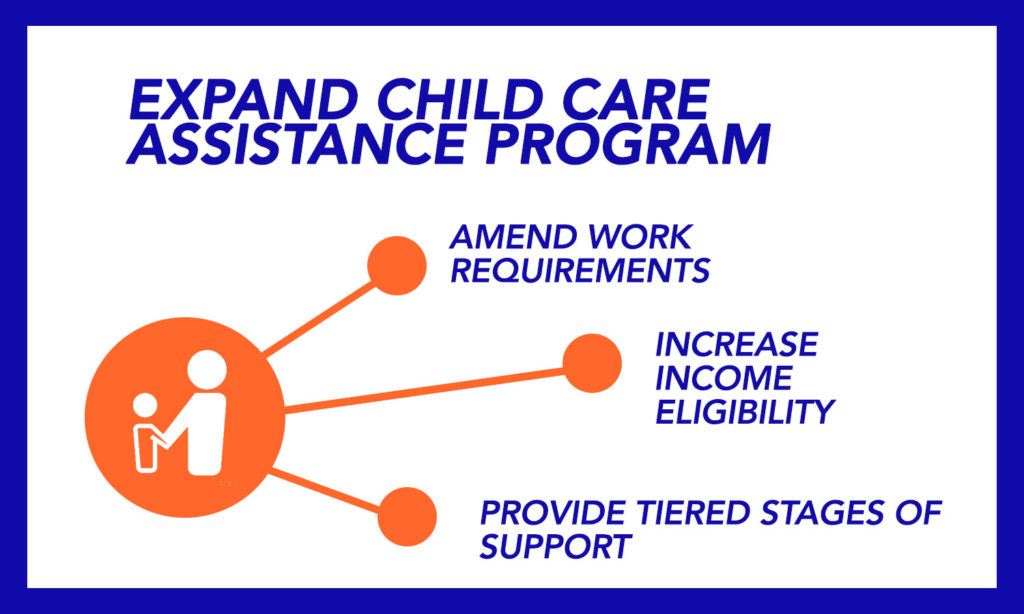
Juggling jobs and home life with young children is a hurdle that many people face. The overwhelming cost of childcare alone is a huge burden on families. No childcare, no work, no income. With that being said, Arkansas does have a program in place to help low-income households with basic childcare needs; but now that the cost of living is on the rise, policymakers must reevaluate eligibility requirements to ensure equal access to those who need it.
Sources: Arkansas Department of Human Services
Paid Family Leave
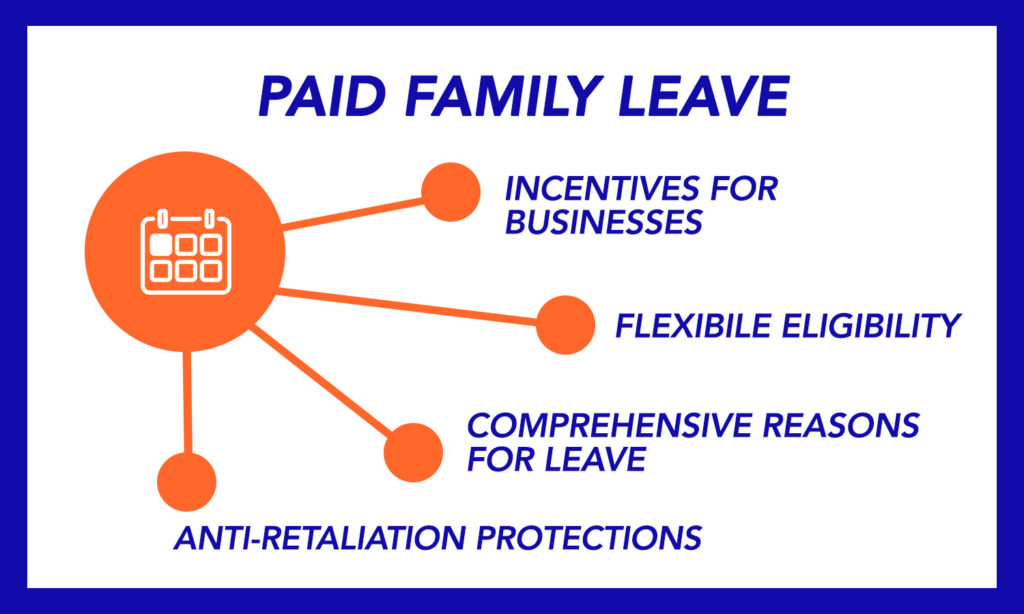
It takes time to recover after giving birth whether physically, emotionally, or financially. We also know that being with a newborn is crucial for early childhood development. Unfortunately, paid family leave is not always guaranteed. In Arkansas, state employees who are employed for over a year qualify for a meager 4 weeks of paid family leave. While 4 weeks is better than nothing, it’s not enough for most new parents and newborns. Additionally, every Arkansas parent deserves the dignity and financial stability that paid family leave offers—not just state employees.
Sources: Zero to Three, NARAL, Arkansas Department of Transformation and Shared Services
Affordable Healthcare
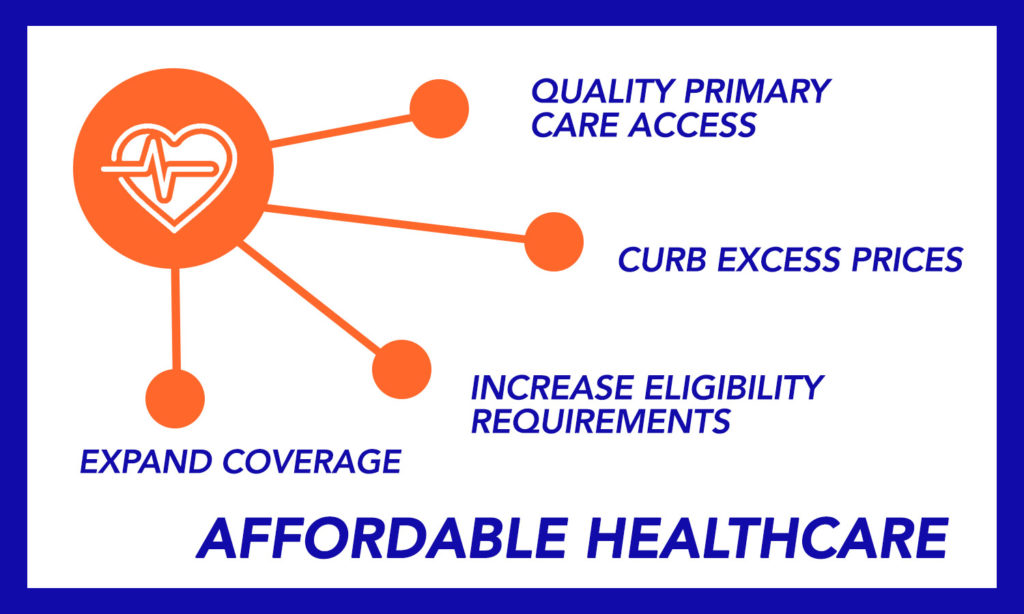
Pregnancy is incredibly expensive in the U.S. The harsh reality is that abortion is sometimes the most cost-effective option for low-income women and families. The average cost for pregnancy nationwide is anywhere from $10,800-$30,000. Vaginal births in Arkansas run around $5,700-$10,170, while C-sections range from $8,616-$13,970. Expanding healthcare access and affordability could greatly reduce abortion rates. Take that a step further: universal healthcare is another whole-life solution that would ensure parents can afford to have babies and children stay healthy in every stage of life.
Sources: Business Insider, Policy Scout
